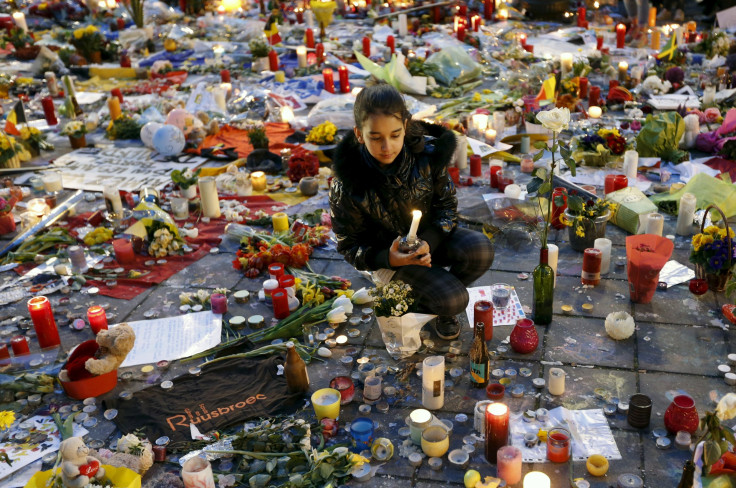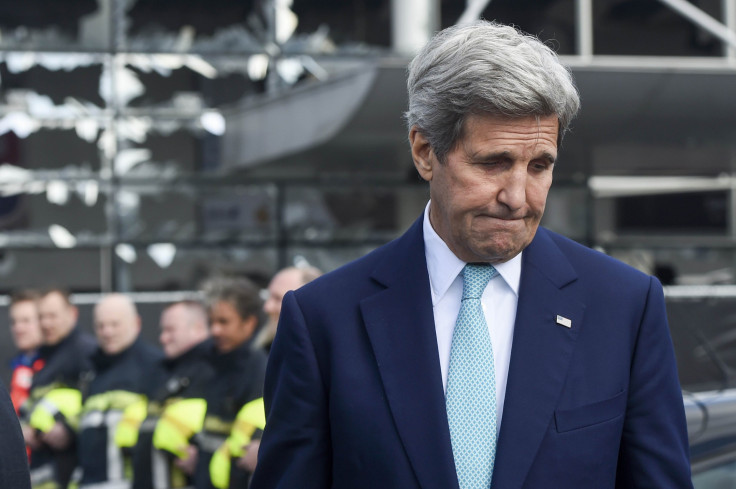Brussels Attacks: Obama Decisions Blamed For ISIS Attacks; Sen Ron Johnson Says Volume Of ISIS Recruits Returning To Europe Overwhleming

Sen. Ron Johnson, R-Wis., Sunday blamed President Barack Obama’s decision not to commit U.S. troops to the fight against the Islamic State group for the failure of an anti-ISIS coalition to form.
Johnson, who chairs the Senate Homeland Security Committee, said on CNN’s “State of the Union” there will be no “coalition of the willing” without U.S. leadership. Democratic presidential candidate Sen. Bernie Sanders of Vermont, said, however, the fight to defeat the “barbaric” terrorist group is one for Muslim nations to handle.
Reacting to last week’s twin terror attacks in Brussels that killed more than 30 people and wounded hundreds more, Johnson declined to blame Belgian security services for failure to act. He noted though the goal is to prevent attacks, in a democratic society it is problematic to arrest individuals who have yet to commit a criminal act. He also said the sheer volume of hardened ISIS recruits flowing back into Europe has “overwhelmed” European security services.
“We need a more robust effort,” Johnson said. “We have not shown leadership.” He said the administration has not articulated a real strategy and blamed the rise of ISIS on the U.S. decision to pull out of Iraq.
“The coalition disintegrated. … ISIS was able to rise from the ashes,” Johnson said.

U.S. Secretary of State John Kerry said on CBS’s “Face the Nation” last week’s attacks created a new sense of urgency in dealing with ISIS, which presents an “existential threat” to Europe, Syria, Iraq, Jordan and Israel. Kerry said he sees the attacks in Europe as a way for ISIS to boost morale among its supporters as it is routed from areas of Syria and Iraq.
Kerry said he sees no way to destroy ISIS without an end to the civil war in Syria, which he said will never be over until President Bashar Assad steps down. He welcomed support from Russia in peace efforts.
“If Russia can help us — and right now it is … that is all in the strategic interests of the United States of America,” Kerry said.

Republican presidential candidate Donald Trump said on ABC’s “This Week” he predicted trouble in Belgium months ago and was ridiculed for it. “I’m the only one who predicted it,” he said, adding he called Brussels a “hellhole.”
“I don’t think America is a safe place for Americans. I don’t think Europe is a safe place,” the real estate mogul said.
Trump called the NATO alliance obsolete and said it should be revamped to fight terrorism or dissolved. And despite his tough rhetoric on Muslims, he said he would not support internment camps in America.
Trump rival Ted Cruz said Trump’s position is wrong. He said NATO has been one of the most successful alliances in history and pulling out would be a mistake.
Johnson rejected the possibility of closing the Guantanamo Bay prison camp on Cuba, saying the country needs a facility where captured terrorists can be kept long term and interrogated over a long period of time.
Sanders said, however, the fight is not solely America’s.
“I agree with King Abdullah of Jordan: The fight is for the soul of Islam. The real battle has to be fought on the ground by Muslim nations,” Sanders said, adding ISIS is on the defensive having lost as much as 40 percent of the territory it once controlled in Iraq. He said efforts must be increased to keep young people from joining the terrorist group.
Republican presidential hopeful John Kasich on NBC’s “Meet the Press” criticized Obama for not returning home from his historic trip to Cuba after the Brussels attacks.
Kerry disagreed, saying terrorists do not set the president’s schedule.
“I wouldn’t have gone to a baseball game in Cuba. I would have come home,” the Ohio governor said, adding that though the president should overreact to situations, he shouldn’t underreact either.
© Copyright IBTimes 2024. All rights reserved.






















